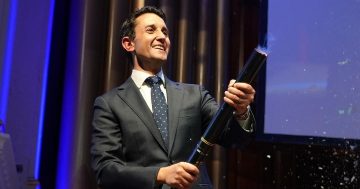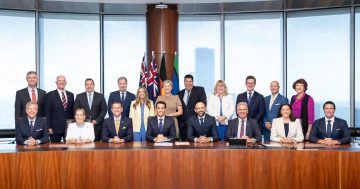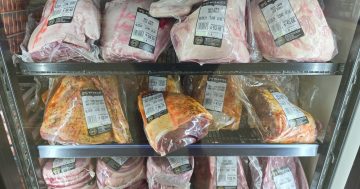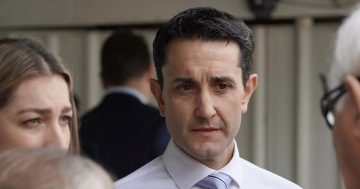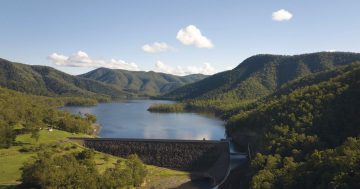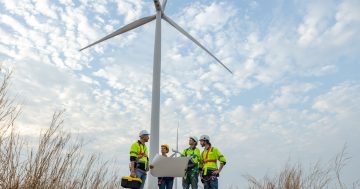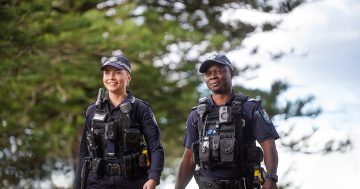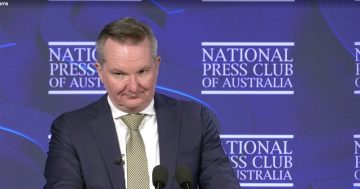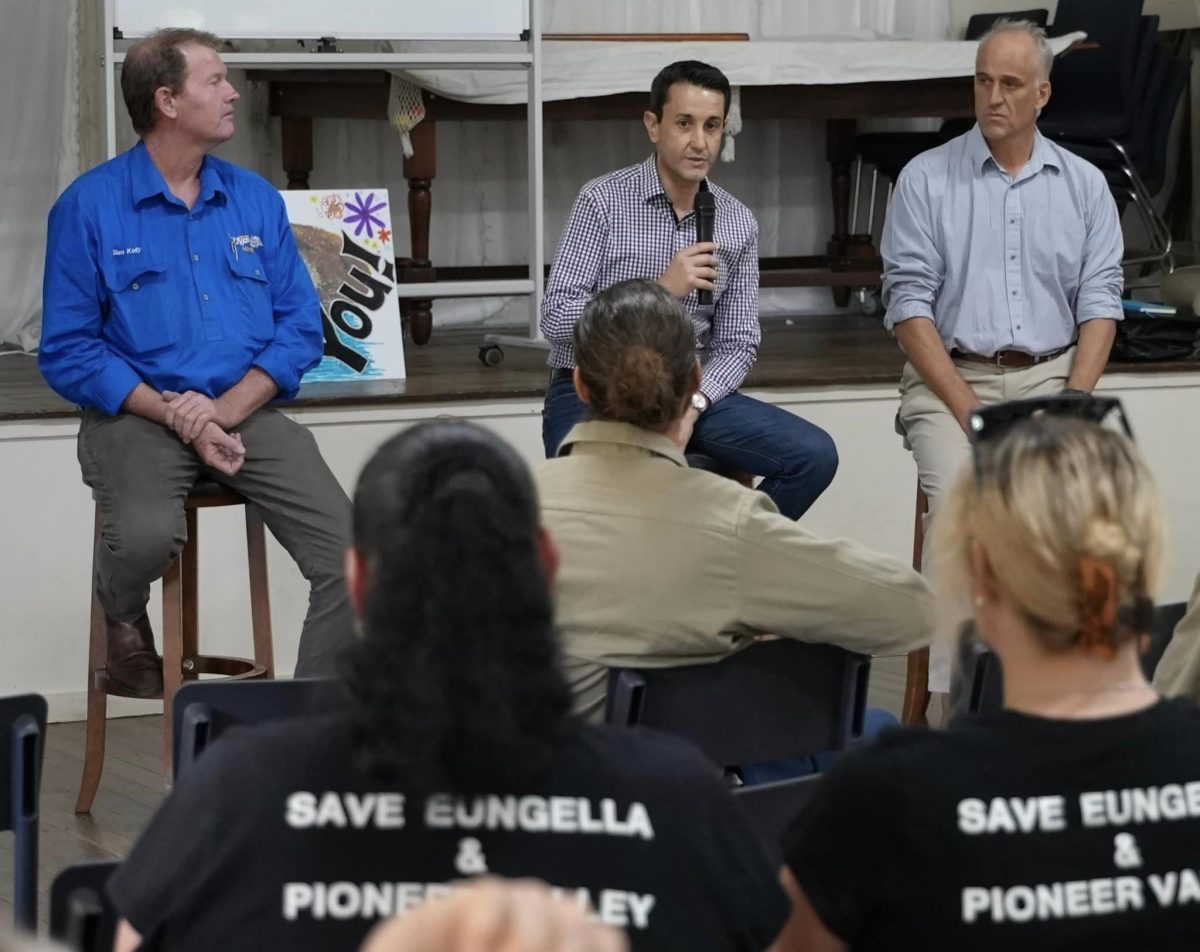
Premier David Crisafulli with LNP candidates Glen Kelly and Nigel Dalton, speaking at a town hall meeting on the Pioneer-Burdekin Pumped Hydro Energy Storage Project that would have required 57 properties to be flooded. Photo: Facebook.
In the first weeks of Queensland’s new LNP Government, it has scrapped a major hydro energy project and caused concern for its pre-election commitments in taking action on climate change.
While the election winners have touted a $13 million investment to boost recycling rates and rejected the Federal LNP’s plan for two nuclear power plants in the Sunshine State, the Queensland Conservation Council (QCC) is worried their intentions are not serious.
“[Premier] David Crisafulli and the LNP understand that Queenslanders want action on climate change and progress on protecting nature, which is why they took important steps like voting for the 75 per cent emission reduction target and pledging not to wind back our vegetation management laws,” said QCC director Dave Copeman – whose organisation appeared as an expert witness during the nuclear power generation inquiry’s hearing in Brisbane.
“If the LNP is serious about meeting Queensland’s emission reduction targets then they need a plan for continuing the rollout of renewable energy and storage to switch off our ageing, expensive and failing coal-fired power stations on time.”
Akin to last week’s stoush between two conservatives in Senate Estimates, Premier Crisafulli and Federal Opposition leader Peter Dutton have been at odds when it comes to nuclear energy.
In June, Mr Dutton unveiled the intended locations of seven nuclear power stations he has committed to building across Australia if the Coalition wins the next federal election. Each site would be located at a power station that has closed or is scheduled to close, which includes Queensland’s Tarong and Callide Power Stations.
During the Queensland LNP’s state election campaign, Mr Crisafulli told media at their first joint press conference since the controversial plan was announced that he would oppose it if elected.
Although Mr Dutton labelled the soon to be Premier’s rejection of his plan as a “difference of opinion” between friends, the event has been noted as indicative of potential divisions within the party.
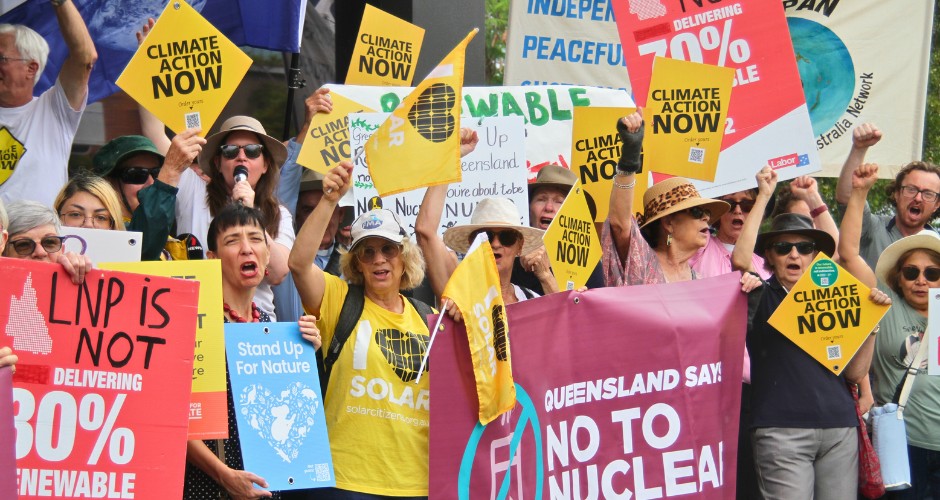
Last Wednesday (15 November) protesters rallied outside a Brisbane public hearing for the inquiry into nuclear generation and demanded an end to what they deem as “delay tactics” that block climate action. Photo: QCC.
On Sunday (17 November), The Guardian reported Premier Crisafulli telling LNP members at a state council meeting in Rockhampton that the party “does not exist for culture wars”.
It was the first speech he’d given directly to the organisation wing and party members since their election win, which sought to address concerns regarding his positions on nuclear power and abortion rights.
While neither were directly mentioned, the Premier said Labor’s “scare campaigns” during the election would not work in four years if the party remained true to its word. He told members “we won’t get everything we want” because winning a second term would require compromise.
“We don’t exist to be the strongest in opposition,” he said. “We exist to bring good government to Queenslanders.”
As mentioned, within days of taking government the election winners shut down the Pioneer Burdekin Pumped Hydro Scheme – which formed a key part of the state’s legislated plan for a renewables transition by 2035.
Pumped hydro energy storage (PHES) is a way of storing energy for use during periods of long-term shortages in renewables generation caused by a wind drought.
Following a report by State Government entity Queensland Hydro, Deputy Premier Jarrod Bleijie announced the project would not be going ahead as it “could not be built on time to meet Queensland’s emissions targets”.
While the largest version of the scheme was “not considered viable”, the report did recommend building one of the two smaller versions. It noted option three for delivering “exceptional value on both a capacity ($/MW) and storage ($/MWh) basis”.
However in spite of the recommendation, the Deputy Premier said neither would be considered.
Part of their reasoning was that they hadn’t gone through a full Treasury assessment, but also due to the party’s promise in opposition to “investigate opportunities for smaller, more manageable pumped hydro projects”.


